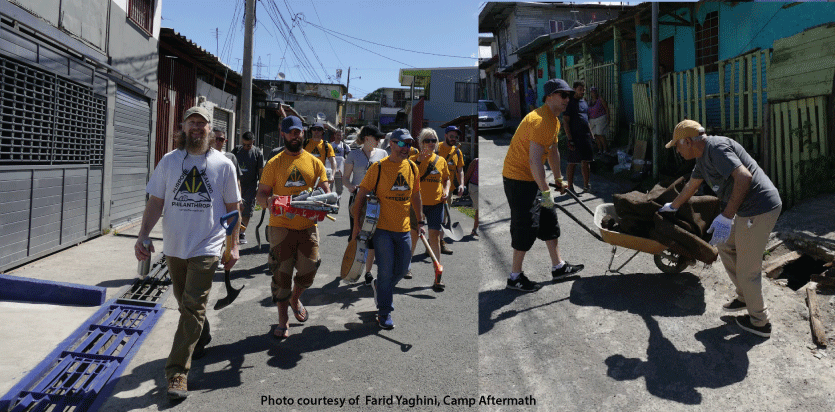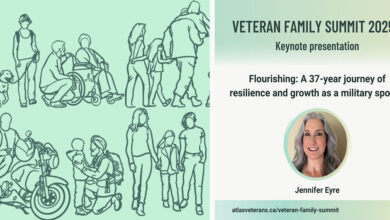Programs & Services
Aftermath Association creates alternative way to combat PTSD
Camp Aftermath, the Aftermath Association’s first project, plans to combat post-traumatic stress disorder (PTSD) by completing humanitarian projects for two weeks in Costa Rica, with a mental health expert and a team of volunteers. The camp is open to both military Veterans and First Responders.
“We go for two weeks, and we assist charities there. We go, and we volunteer to build homes for people, the environment, and animals. That is supposed to regain a sense of purpose that the military member or First Responder lost,” said Farid Yaghini, Chairman of the Aftermath Association.
Yaghini said what separates Camp Aftermath from all the other mental health programs available, is that participants are not dependent on coming back to the program. While participants complete various projects in Costa Rica, they will be registered to volunteer for a charity back in Canada. When the participants return, they will volunteer with their respective charities and the Aftermath Association checks in periodically for up to a year.
“You embrace that power of giving and ‘Wow, I can serve again, I don’t need a war, I don’t need a uniform, I don’t need conflict for me to be a hero,’” added Yaghini. “But that’s what we’re all kind of trained to think like if I don’t have this uniform, I don’t have a purpose. It’s your identity.”
Yaghini joined the military in 2002 and immediately posted to CFB Petawawa, where he joined 2 RCHA. After working in Petawawa for about a year, Special Forces caught wind of the fact Yaghini was fluent in seven languages.
“I was recruited to provide linguistic support, and for the next ten years, that’s what I did. Multiple deployments and I was posted out of Petawawa to Ottawa to support them over here, and so that’s what I did for my career,” he said.
During one of his deployments, Yaghini was involved in a helicopter crash. They were trapped for several days before someone was able to rescue him. Unlike the others involved in the helicopter crash, Yaghini never suffered from PTSD.
“In all the traumatic experiences that comes with conflict, they realized there were these flickers my mind had anchored itself to,” said Yaghini.
These flickers were happy memories. Instead of holding onto a traumatic memory, Yaghini’s brain was able to latch onto a good memory. This particular memory was of a time when he was deployed, and he and his team were camped out on top of a mountain. At the bottom of the hill was an all-girls school that had been destroyed in a bombing. Yaghini and a small group decided to deliver supplies to the school in the middle of the night.
“I got to watch those kids come through my binoculars. That is something that I replay all the time. My mind, for some reason, has anchored itself to that amazing moment,” said Yaghini. “I just want to recreate that. If that’s what saved me, why can’t I recreate that for them in a safer environment? It doesn’t have to be conflict. It can just be people that need your help.”
Yaghini even wanted to make the application process simple for potential participants. He found one of the most challenging parts of being a Veteran is having to tell your story over and over to multiple different people.
“So, you want to come to Camp Aftermath, I would tell you what it’s about and what we’ll be doing. If you’re still interested, we’re going to ask you for permission to release your information,” said Yaghini.
Once permission to release the information has been given, Yaghini then contacts the veteran or First Responder’s mental health expert. The Veteran or First Responder’s mental health expert then has the authority to decide if Camp Aftermath is right for their client.
“If they’ve got more questions, I would put them in touch with our mental health expert, and they could have that professional conversation,” added Yaghini.
The cost for Camp Aftermath is $2,000, and Yaghini said this is to help weed out the people who aren’t going to take the program seriously. The first rotation to Costa Rica is set to depart in January 2019.
For more information on how you can sign up for Camp Aftermath, you can visit their website here.
Alternatively, if you are interested in helping to fund the camp, you can visit their fundraising page here.











